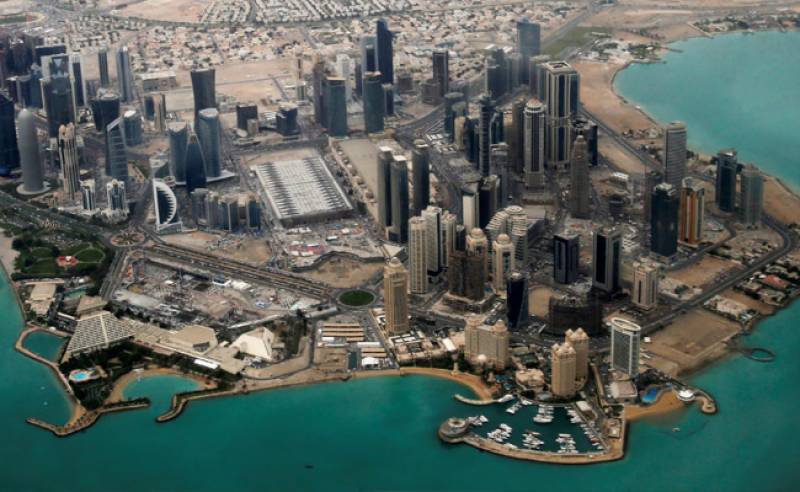Doha, Qatar (Web Desk): Qatar appeared defiant as Saudi Arabia and its allies Monday extended a deadline for Doha to accept a series of demands to lift a de facto blockade.
According to details, their demands include Doha ending support for the Muslim Brotherhood, the closure of Al-Jazeera television, a downgrade of diplomatic ties with Iran and the shutdown of a Turkish military base in the emirate.
Saudi Arabia and allies including the United Arab Emirates, Bahrain and Egypt gave Doha 10 days to comply with their 13 demands, with the ultimatum due to expire at the end of Sunday.
In response to a request, the 48-hour extension was by the Kuwaiti emir who is acting as mediator in the Gulf crisis.
It would give its response to the emir, Sheikh Sabah al-Ahmad Al-Sabah, on Monday, Qatar said.
The letter will be handed over by Qatar's Foreign Minister Sheikh Mohammed bin Abdulrahman Al-Thani.
Sheikh Mohammed said Saturday, "The list of demands is made to be rejected."
He said at a news conference in Rome, "Everyone is aware that these demands are meant to infringe the sovereignty of the state of Qatar."
He said, adding, "The state of Qatar... is rejecting it as a principle. We are willing to engage in providing the proper conditions for further dialogue."
On June 5, Saudi Arabia and its allies announced that they were severing ties with their Gulf neighbour, sparking the worst diplomatic crisis to hit the region in decades.
They accused Doha of supporting extremism and of being too close to regional arch-rival Iran, which Qatar has strongly denied.
The Gulf crisis has raised concerns of growing instability in the region, home to some of the world's largest energy producers and several key Western allies hosting US military facilities.
Foreign Minister of Germany Sigmar Gabriel, called for a "serious dialogue" to end the crisis who on Monday starts a tour of several Arab states including Saudi Arabia, the United Arab Emirates and Qatar.
Gabriel said, "We are worried that the distrust and the disunity could weaken all the parties concerned as well as the entire peninsula."
Saudi Arabia and its supporters have already severed air, sea and ground links with Qatar, cutting off vital routes for imports including food.
The UAE ambassador to Russia has said that Qatar could face fresh sanctions if it does not comply with the demands.
Gulf states could ask their trading partners to choose between working with them or with Doha, he said in a newspaper interview last week.
They have not specified what further sanctions they could impose on Doha, but commercial bankers in the region believe that Saudi, Emirati and Bahraini banks might receive official guidance to pull deposits and interbank loans from Qatar.
A more serious sanction would be to ban investors from holding Qatari assets, but authorities have given no sign of doing this.
Qatar's stock market fell sharply on Sunday. The Qatari stock index .QSI sank as much as 3.1 percent in thin trade, bringing its losses to 11.9 percent since June 5, when Saudi and the other countries cut diplomatic and trade ties.
The UAE's minister of state for foreign affairs, Anwar Gargash, played down the chances of an escalation, saying "the alternative is not escalation but parting ways", suggesting Qatar may be forced out of the six-member Gulf Cooperation Council (GCC).
The Western-backed body was formed in 1981 in the wake of Iran's Islamic Revolution and the outbreak of the Iran-Iraq war, by Saudi Arabia, the United Arab Emirates, Kuwait, Qatar, Oman and Bahrain.
Speaking in Washington last week, the Qatari foreign minister said the GCC was set up to guard against external threats.
"When the threat is coming from inside the GCC, there is a suspicion about the sustainability of the organization," Sheikh Mohammed told reporters.
Qataris appeared defiant on Sunday, with newspapers decrying a "siege" and sharing on social media a cartoon of David and Goliath to illustrate Qatar's struggle with its larger neighbors.
A Qatari artist whose portrait of Qatar's emir has been draped from skyscrapers and affixed to car windows across the capital signed T-shirts for Qataris at a museum on Saturday.
"As you see, the photo is now all over, it's a sign of loyalty to the emir and love for the country," he said.
Saudi Arabia's permanent representative to the United Nations, Abdullah bin Yahiya al-Moallemi, said on Twitter that Qatar had failed to take opportunities offered by its neighbors in the past to stop supporting terrorism.
"Qatar had insisted on shaking the security of the kingdom of Saudi Arabia and interfering in the affairs of countries in the region," Moallemi said.
The crisis has hit travel, food imports and ratcheted up tensions in the Gulf and sown confusion among businesses, while pushing Qatar closer to Iran and Turkey.
But it has not hit energy exports from Qatar, the world's biggest exporter of liquefied natural gas and home to the region's biggest U.S. military base.
The rift opened days after U.S. President Donald Trump met Arab leaders in Riyadh and called for unity against regional threats such as Iran and hardline Islamist militant groups.


